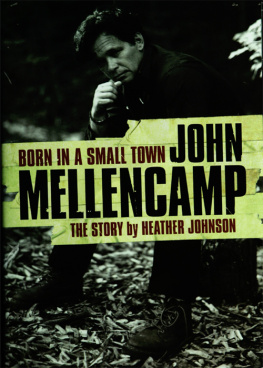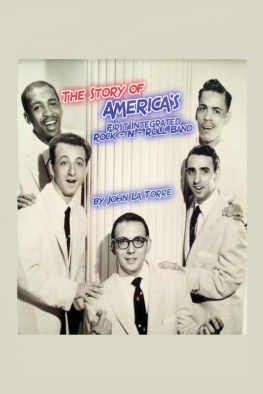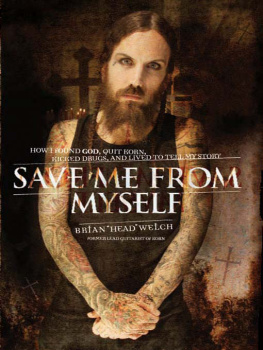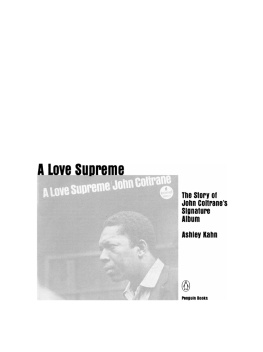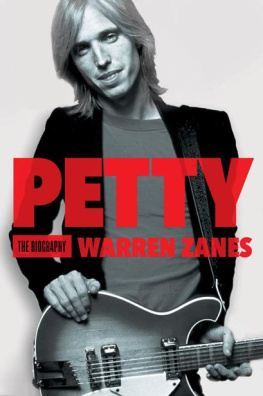
Copyright 2007 Heather Johnson
This edition 2012 Omnibus Press
(A Division of Music Sales Limited, 14-15 Berners Street, London W1T 3LJ)
EISBN: 978-0-85712-843-0
The Author hereby asserts his / her right to be identified as the author of this work in accordance with Sections 77 to 78 of the Copyright, Designs and Patents Act 1988.
All rights reserved. No part of this book may be reproduced in any form or by any electronic or mechanical means, including information storage and retrieval systems, without permission in writing from the publisher, except by a reviewer who may quote brief passages.
Every effort has been made to trace the copyright holders of the photographs in this book, but one or two were unreachable. We would be grateful if the photographers concerned would contact us.
A catalogue record of this book is available from the British Library.
For all your musical needs including instruments, sheet music and accessories, visit www.musicroom.com
For on-demand sheet music straight to your home printer, visit www.sheetmusicdirect.com
I NTRODUCTION
R ichard and Marilyn Mellencamp rose before dawn one warm Sunday morning in September 2003.They put on nice, comfortable clothesnot the usual stiff suits and toe-pinching heels that one normally endures this day of the week. Today, they could wear tennis shoes if they really wanted to, because instead of attending Sunday service, they were going on a road trip.
Marilyn smoothed her hair and checked her lipstick in the mirror one last time before she and Richard got in their car, pulled out of the driveway of their large white house with black shutters and settled in for a three-and-a-half-hour drive from Seymour, Indiana, to Columbus, Ohio. They had tickets and VIP backstage passes to see their son play the 16th annual Farm Aid concert at Germain Amphitheater that night, and he invited them to be his special guests. The concert had sold out in two weeks and was being taped for PBS and an eventual DVD release. With minimal pit stops, they arrived at the venue, parked the car and made their way to their seats up close to the stage. The sun had set and acts such as Sheryl Crow, Hootie & the Blowfish and Los Lonely Boys had already played by the time their son, John Mellencamp, took the stage with his band. The lights beamed hot white and blue as they assumed their positions around the frontman. The crowd roared. Richard and Marilyn Mellencamp must have puffed up with pride as they watched their middle son launch into his near-flawless performance. It didnt seem that long ago that he was playing at an old geezer bar in Seymour, barely out of high school, with a wife and young child. They kept wondering when hed pack it in and get a real job, but he never did and it sure worked out well for him. John started to play a new song he had worked up with the band, Stones in My Passway, but before guitarist Andy York uttered the first note on the slide guitar, the mood shifted from sunny enthusiasm to stormy anger and protest. Just moments before walking on stage, John learned that President George W. Bush had just asked Congress for $87 billion for the war in Iraq. John relayed this fact to the 20,000 people in the audience. Think about what that money could do for the family farmer, he continued. Thousands of people booed and yelled back at the artist. A few brave souls cheered. Richard and Marilyn Mellencamp were stunned by what they saw and heard. Their son had helped found the organization that brought them this concert in the first place, and many of them owned his records. And now they want to boo him off the stage? They had seen their son perform hundreds of times, but never had they heard such jeers.
For John and his longtime guitarist/co-producer Mike Wanchic, this was nothing. They both developed a pretty thick skin over the past 25-plus years, so a few hecklers wouldnt ruin their day. They had dodged whiskey bottles, spit bombs and any number of flying objects from their audience. They had played in dive bars to no one but the bartender. Their friends, family and people in the music industry repeatedly told them that they would not make it, they were not good enough and their records were terrible. Even John agrees that, yes, some of them were terrible. John wasnt a good songwriter when he launched his career in the mid-70s, and his bandmates werent very good musicians. Heck, it took them three albums before they learned key changes!
After years of criticism and costly mistakes, a weaker man would have either given up or continued a mediocre career singing cover songs in bars. But weakness and surrender are not part of the Mellencamp vocabulary, and they dont settle for mediocrity. The Mellencamps do not give up; they fight, both physically and mentally. John Mellencamp had big dreams that seemed impossible to almost everyone at first, even himself. But over time, he inched his way closer to those goals. His songs got better. His band got better. They shut out the negative voices of the record labels, the record producers, the press and everyone else around them. They ignored whatever trends dictated popular music at the time, and they pressed on. By staying true to himself, John Mellencamp created his own genre, culled from the sights, sounds and the people that lived in his own back yard. What he heard in his head evolved over time, from the raw, in-your-face garage rock with singable choruses, to acoustic-based Americana with a conscience, to a melding of the two with loops and samples. An old saying goes, when you get mad enough to swear, its time to invent something. John Mellencamp swears liberally; likewise, hes invented and re-invented himself many times.
The only voice John listened to was his own, and he held steadfast to that vision no matter how many times life side-swiped him with obstacles. He sets high expectations for himself and those who work for him, and the hard work and bullheadedness he logged in through the years resulted in a recording career that has sustained over three decadesabout three decades longer than most people thought he would last.
One lesser recognized reason that John Mellencamp has excelled in creating what he calls R&B-flavored folk music with a rock beatmusic thats not necessarily hip to like but usually quite likeable nonethelessstems from the small assemblage of musicians that have backed him through the years. Because just as John has had to remain fully committed to his vision, his bandmates had to commit themselves just as thoroughly to that vision. To lose focus was to face the wrath of a five-foot-seven taskmaster who doesnt generally censor his words. Early on, a group consisting of Mike Wanchic, Larry Crane, Toby Myers and Kenny Aronoff set a goal in their minds to be the Americas best band, and particularly during the peak years of Scarecrow and The Lonesome Jubilee, they hit the mark. These supporting roles in Johns personal drama have changed hands through the years, but all have played pivotal parts in his success. The chapters that follow tell his bands story as much as John Mellencamps. And after 56 years, that tale contains elements of dark comedy, tragedy, drama and suspense, with enough ups and downs to cause motion sickness in those weak in the knees. But then again, the weak dont last long in John Mellencamps circle. Only the strong survive.
C HAPTER O NE


